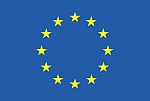short menu
About EUREC
National Information
Services
- Event Calendar
- Information for Researchers
- Training Materials
- Login for EUREC members

This network has received funding from the European Union.
EURECNET - Background
Background
Today, the ethical review of research projects which involve human participants has become a mandatory standard that is reflected in national laws as well as in supranational and international documents. Not only those people who are willing to participate as subjects in research projects, but also both researchers undertaking projects and the general public have come to expect that an independent review process is in place which ensures the highest degree of protection possible and, more generally, that research is carried out in an ethically acceptable manner. This has been a relatively short journey. In the early second half of the 20th century review bodies started to emerge, mainly as a form of self-regulation of the medical profession and often in an ad-hoc form responding to concrete problems. However, in the past decades Research Ethics Committees (RECs) have, in most European countries and worldwide, been established as permanent and independent bodies. As such they build, at least in Europe and other western countries, the core of a robust infrastructure which monitors and reviews research projects.
Undoubtedly, the current practice of RECs in Europe is, by and large, a success story. The day-to-day work of RECs ensures not only a comprehensive protection of research subjects, but also the wide public acceptance of and public trust and confidence in biomedical research in the European Research Area. Despite this RECs are facing significant challenges. Whereas the development of RECs and particularly their ethos have been developed with an appropriate local cultural sympathy and resonance, research projects in the field of biomedicine, especially clinical trials, are often carried out as multicentre studies, i.e. at different institutions in different countries both within Europe and also internationally. These multi-centre projects expose significant cultural differences. Further, these differences can be seen in differences in laws or in the discretion to implement laws relevant to the particular research. The established and reliable practice of local (or regional or, in some countries, national) review seems not to be fully equipped to meet all of these challenges. Moreover, new technologies and research methodologies raise ethical questions for which existing procedures and guidelines are inadequate or not existing.
It is against this background that efforts have been made to foster awareness and linkage among RECs on local, regional, national, European and international level. This is especially important since the legal basis as well as the set-up, structure and practice of RECs varies considerably across Europe. EURECNET will take those efforts forward. It is a network that brings together national REC associations, networks or comparable initiatives, the Forum of National Ethics Committees (NEC Forum), together with other bodies relevant in this field and the European Commission's ethical review system, form the necessary but currently missing infrastructural basis to promote awareness of specific working practices of RECs across Europe, to enhance the shared knowledge base of European RECs, to support coherent reviews and the development of opinions, and to meet new challenges and emerging ethical issues.
